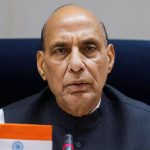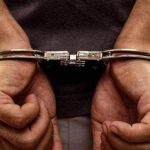In a groundbreaking move on August 5, 2019, the Indian government abrogated Article 370 and Article 35-A, resulting in sweeping changes for the Union Territory of Jammu and Kashmir. Among the notable developments, more than 22,000 families of West Pakistan Refugees (WPR) residing in various parts of the UT have been granted permanent residency status.
Prior to the revocation of Article 370, the WPRs faced severe restrictions, as they were unable to own land, apply for government jobs, or exercise their right to vote in Assembly, Urban Local Bodies (ULB), and Panchayat elections in J&K. However, after the historic decision, around 1.25 lakh WPRs gained voting rights and became eligible to participate in these crucial elections.
Furthermore, non-locals now enjoy voting rights in Jammu and Kashmir, with an estimated 25 lakh new voters expected to be registered for the first time through a special revision of electoral rolls. Any individual residing in Jammu and Kashmir for job, education, labor, or business purposes can now register as a voter and actively participate in the Assembly elections.
The Gorkha community, too, has been empowered with voting rights in Assembly, ULB, and Panchayat elections following the abrogation of Article 370.
Previously, 5,764 families of Hindus and Sikhs, known as West Pakistani Refugees (WPR), had migrated to India after the partition in 1947. However, they were not considered residents of Jammu and Kashmir and were limited to voting only in Parliamentary elections.
With the removal of Article 370, all 22,160 registered families of WPRs have been issued domicile certificates, obviating the need for Permanent Resident Certificates in Jammu and Kashmir for voter registration.
The abrogation of Article 370 also led to significant changes in the electoral process. Earlier, the Assembly Electoral Rolls were restricted to permanent residents of Jammu and Kashmir under the Jammu and Kashmir Representation of People Act 1957. Now, with the applicability of the Representation of People Act 1950 and 1951, any Indian citizen of qualifying age residing in a place is eligible to be registered in the electoral roll of that locality.
Moreover, the revocation of Article 370 has not only ensured a dignified life for WPRs and the Gorkha community but has also paved the way for the ValmikiSamaj (community) to lead a more respectable life in Jammu and Kashmir. Historically brought to the region from Punjab for scavenging, the Valmiki community was previously restricted from pursuing other job opportunities.
The abrogation of Article 370 has undoubtedly brought about transformative changes to the social and political landscape of Jammu and Kashmir, creating an atmosphere of inclusivity and empowerment for various communities residing in the region.





